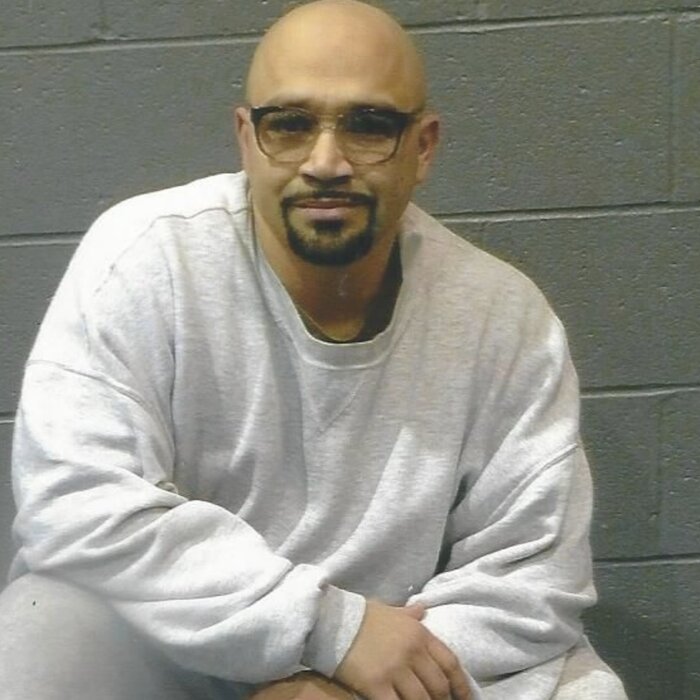This is the time of year when we are supposed to forget our troubles and appreciate the good things in our lives. Out “in the world,” families sit together around large tables loaded with plates of food, with a juicy, stuffed turkey in its honored place in the center. Children excitedly await the opening of presents, and the gleam in their eyes lifts everyone’s spirits as they gaze in awe at the pile of packages under the tree.
At least, that’s what the TV commercials show us.
But for many Americans, that portrayal is a cruel farce. They can’t afford a feast or a pile of presents. And, too often, a family member is missing, locked away in a far-off prison—the “other victims” of the reported crime wave. In fact, nearly 45% of Americans reported in a Cornell study that a close family member had spent time in a jail or prison.
Year after year for the last 20 years, I have had people wish me a “merry Christmas” and “happy new year.” But what is the significance of the holidays in a place that is plagued with so much misery and ugliness? What do the holidays mean when I’m serving a life sentence? Those questions lead to more existential ones: What is the meaning of my life? Where is my purpose within the oppressiveness of these gates and walls? For many years, I have pondered these questions.

The first step to new meaning
Many people behind bars look to religion to find answers. Some call out to God, Jehovah or Jesus. Others follow Allah and the Prophet Mohammed. And there are those who reach out to Wanka Tanka, The Great Mystery or the Great Creator. We search for a higher power to bring meaning to our struggles.
I too have found a way to cope via a spiritual path: the Red Road of the Native Americans. But before I could tap into that, I had to first understand why I was in prison. Am I here because some cruel police officer abused his power over me? Am I in prison because an overzealous prosecutor wanted to advance his career at my expense? Or am I here because some cowardly co-defendants cooperated against me to receive a lighter sentence?
The answer to these questions is a resounding NO.
I am in prison because of a series of decisions I made prior to my incarceration. Whatever outside factors influenced my choices, they were still my decisions. So, to be able to take my first steps on a spiritual path, I had to first accept the role I played in my own incarceration. Freed from the anchor of denial, I was finally able to move forward.
Accepting responsibility for my own acts was probably one of the most difficult things I have ever had to do. It’s difficult for anyone to accept responsibility for their failures, especially when they are severe. But acceptance was needed before I could begin any kind of journey to a healthier mental state. And once I managed to scale that first major hill, I found that there were many more mountains in front of me. Acceptance was my first step, but it was far from my last.
Life comes at us fast. But what I’ve learned is that every struggle is an opportunity to learn something new about ourselves. And every challenge we manage to overcome, reveals a strength we didn’t know we had. Even in the circumstances of serving a life sentence, the human spirit is resilient.
In his iconic book, Dune, writer Frank Herbert once wrote, “The mystery of life is not a puzzle to be solved, but a reality to be experienced.” This may be true, but reality is skewed by perception. How one perceives that reality determines how it is experienced. If our perception of an experience is, “I am being treated unfairly,” then we perceive ourselves as a victim. If our perception of an experience is, “What can I learn from this experience, and how can I overcome it?” then we perceive ourselves as a student of life, and we continue to persevere.
Small gifts
Despite being a lifer, I have learned to appreciate the small gifts in life, and that helps me not only persevere but grow personally. Consider, for example, this year’s Thanksgiving meal in prison. I understand the history behind Thanksgiving, and it’s not a pretty one. So, I don’t celebrate it. But in prison, we look for value where we can find it. And I do appreciate good food. This year, the Thanksgiving meal at FCI Cumberland (Maryland) was much better than usual; when I entered the chow hall, my senses were greeted by a delicious aroma. We were each served one helping of turkey chunks on our tray, but we were allowed all the stuffing, candied yams, mashed potatoes and gravy we wanted on the hot bar. (In prison, you learn to really appreciate hot food; it’s the first thing that’s cut.)
I loaded my tray with everything, piled high, as if I would never eat again. The sweet smell of the candied yams urged me to rush to the table, eager to dig in. But when I placed that heavy tray on the table, and sat in front of it all, I was suddenly struck with the notion of how lucky I was in that moment. I thought about all the families who couldn’t have such a healthy, plentiful meal. I understood that many had to struggle and sacrifice to have even half of what was on my tray. And…I also thought of the mother whose heart was still broken because she had to celebrate yet another holiday without her beloved son, a son that I had taken away from her all those years ago.
My heart swelled with guilt, pain and appreciation all in that one moment. And I recognized that, despite my circumstances, I could still count my blessings. So, rather than celebrate a day I don’t really believe in, I spent it thinking about all of those who have less than me, being grateful for what I have and wishing for a better year for those who lack.
Only you can walk your journey, but many are on the road.
BLACK ELK, OGLALA SIOUX MEDICINE AND HOLY MAN
This is how I have survived through all these years. I have learned to see the collateral beauty that arises out of tragedy. I look for the small things and appreciate their value in my life. Challenges come and go. The struggle is continuous. We have no control over this. The only thing we can control is how we respond. And it is the small blessings, if we allow ourselves to see and appreciate them, that can give us the strength to persevere and overcome the bigger obstacles.
Thank you, for your good will
So, when someone wishes me a merry Christmas or happy new year, I am not bitter because I am in here and they are free. That person is wishing me good will, and I value the sentiment. A wish for good will. We can all use some good will.
I encourage all of you to learn to love and be grateful all year long. We don’t need to designate two months out of a year to be grateful for the lives we have. Life is truly what we make of it, no matter the circumstances. We can make it even more difficult, or we can make it as meaningful as possible. We just need to allow ourselves to see the collateral beauty that surrounds us during our most trying times in life.
This is how I have learned to appreciate the “holidays.”
For those of you who celebrate, happy holidays. And for those of you who do not, I wish you good will. Live well and love hard.




